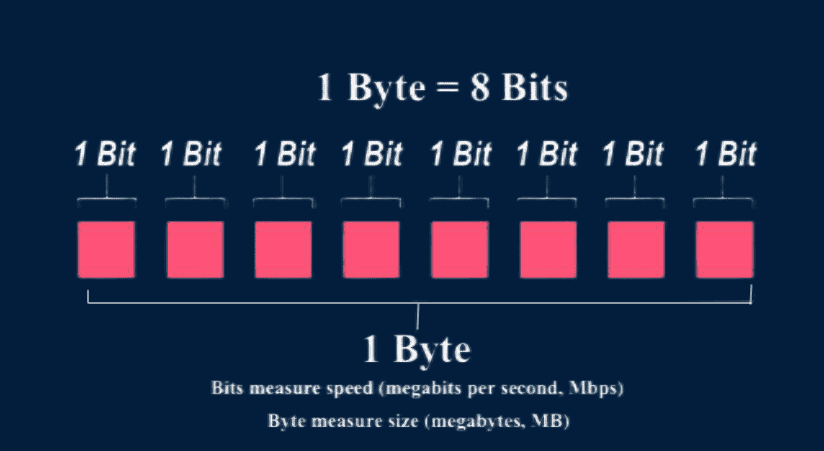Optimize Your Internet Experience: Why Megabits Per Second Matter
In today's progressively digital landscape, recognizing megabits per second (Mbps) is essential for maximizing your net experience. This metric not just influences the rate of your online activities but additionally identifies how successfully you can engage with numerous digital platforms. As various tasks call for varying transmission capacity levels, the implications of selecting the right Mbps come to be apparent. However, lots of customers remain unclear regarding their real needs and the prospective effect on their internet efficiency. What aspects should one take into consideration when examining their Mbps needs, and how can this understanding boost daily connectivity?
Comprehending Megabits Per Second
In today's electronic landscape, several individuals may discover themselves perplexed by the term "megabits per second" (Mbps), which acts as a crucial procedure of net rate. Mbps evaluates the rate at which data is transferred over an internet connection, offering a concrete number that can aid customers analyze their online experience.

Moreover, interpreting Mbps includes comprehending the difference in between megabits and megabytes. While a megabit is one-eighth the dimension of a megabyte, users often confuse these terms when analyzing their web strategies. Consequently, a 50 Mbps connection corresponds to about 6.25 megabytes per second in real download rate.
Ultimately, realizing the principle of Mbps encourages customers to make enlightened choices when choosing web service companies, guaranteeing they choose a plan that meets their specific demands.
Just How Mbps Influence Web Activities
A connection rate of 25 Mbps can dramatically influence how customers involve with different online activities. For informal surfing and streaming, this speed generally provides an acceptable experience. Users can comfortably stream video clips in common meaning, participate in social media sites, and surf web sites without visible lag.
However, as the demands of on-line activities increase, a 25 Mbps link may fail. Activities such as high-def streaming, online gaming, and video clip conferencing need more transmission capacity. Streaming in 4K resolution usually necessitates a minimum of 25 Mbps per stream, which can lead to buffering if several devices are linked simultaneously.
In addition, on the internet pc gaming can be negatively affected by reduced rates, causing latency issues that impede gameplay. Video clip conferencing applications often call for stable links to maintain high quality, and a 25 Mbps link can struggle under hefty use.
Determining Your Required Mbps
Comprehending your specific internet demands is vital for identifying the proper Mbps for your house or company. To accomplish optimum performance, think about the variety of devices linked to your network, the tasks performed, and the bandwidth demands related to each job. Streaming high-def video clip normally calls for 5-25 Mbps per tool, while online video gaming may require 3-6 Mbps for a smooth experience.
Furthermore, if several customers take part in data-heavy tasks at the same time, you may require a greater Mbps to suit this use. Performing a supply of your tools-- smartphones, tablets, laptop computers, and smart TVs-- will certainly help you assess your total data transfer demands.
Additionally, think about view it the types of applications your home or company utilizes. Video clip conferencing, huge documents downloads, and cloud-based solutions demand more bandwidth, influencing your Mbps requires considerably.
Selecting the Right Web Plan
Selecting the right internet strategy includes evaluating different elements that align with your details requirements and usage patterns. Begin by assessing the variety of gadgets that will attach to the network all at once. Families with several users streaming video clips, playing on the internet games, or working from home will certainly require greater bandwidth contrasted to laid-back users that mainly browse the internet.

In addition, consider your spending plan, as net strategies can differ dramatically in price. It's critical to stabilize your demand for rate with cost. Look for promotional offers, but ensure that you understand the terms and any type of prospective price rises after an introductory duration.
Tips for Improving Your Speed

Following, restrict the variety of gadgets linked to your network, as each gadget takes in transmission capacity. Separate extra tools, and focus on those that need high-speed links for tasks such as video gaming or streaming.
Consistently upgrading your router's firmware is additionally critical; suppliers regularly launch updates that boost efficiency and protection. Using an Ethernet cable for tools that require constant speed-- like gaming consoles or desktop computer computer systems-- can substantially improve connectivity contrasted to Wi-Fi.
Verdict
In final thought, recognizing megabits per second is critical for optimizing web efficiency. Assessing certain needs allows for the choice of an ideal net plan, have a peek here ensuring ample transmission capacity for numerous devices.
In today's progressively electronic landscape, understanding megabits per second (Mbps) is important for optimizing your internet experience. While a megabit is one-eighth the dimension of a megabyte, users typically confuse these terms when examining their web plans.Many techniques can improve your web speed, guaranteeing a smoother online experience.In verdict, comprehending megabits per second is important for optimizing web performance. Analyzing specific requirements permits for the selection of an appropriate web plan, guaranteeing adequate data transfer for multiple tools.
Comments on “Debunking Megabits Per Second: What Customers Required to Know”